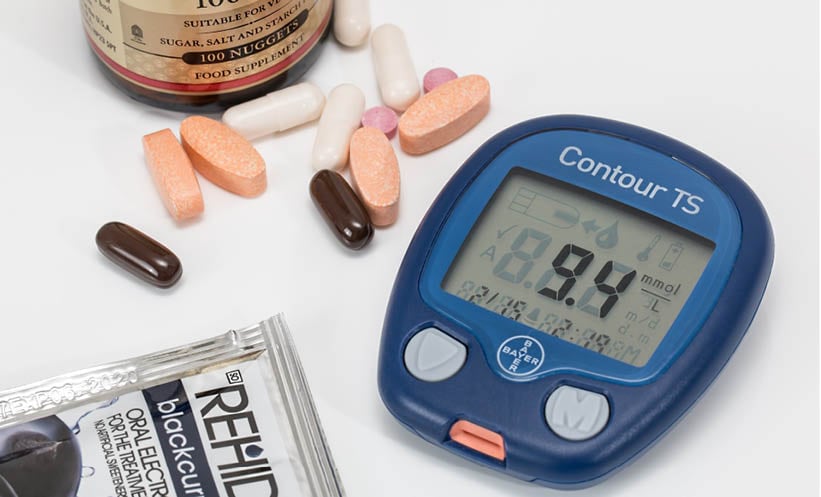BLOOD sugar levels and body weight in Type 2 diabetes patients are reduced to a greater extent by treatment with once-weekly semaglutide compared to treatment with dulaglutide, according to the results of the SUSTAIN 7 trial. The results of the head-to-head study, which were statistically significant, could lead to a much needed new therapy option becoming available for Type 2 diabetes patients.
Effectiveness of Semaglutide
The 40-week trial compared the efficacy and safety of 0.5 mg semaglutide with 0.75 mg dulaglutide as well as 1.0 mg semaglutide with 1.5 mg dulaglutide, when given weekly to patients insufficiently controlled with metformin monotherapy. This showed that, in line with results from the other efficacy studies in the SUSTAIN clinical trial programme, both HbA1c and body weight were reduced more by semaglutide.
HbA1c Reduction
From a mean baseline of 8.2%, HbA1c was reduced by 1.5% with semaglutide 0.5 mg, which compared to a reduction of 1.1% with dulaglutide 0.75 mg; these levels were reduced by 1.8% and 1.4% with 1.0 mg semaglutide and 1.5 mg dulaglutide, respectively. This resulted in an estimated treatment difference of -0.40% and -0.41% in the low and high-dose comparisons, respectively.
Body Weight Reduction
Body weight, from a mean baseline of 95.2 kg, was reduced by 4.6 kg and 2.3 kg in semaglutide 0.5 mg and dulaglutide 0.75 mg, respectively, while in semaglutide 1.0 mg and dulaglutide 1.5 mg, it was reduced by 6.5 kg and 3.0 kg, respectively.
Potential Treatment Option
These results suggest that semaglutide is a potentially valuable therapy for patients living with Type 2 diabetes. “As a clinician, I know first-hand how challenging it can be to help people living with Type 2 diabetes reach their treatment goals,” commented lead author Dr Richard Pratley, Translational Research Institute for Metabolism and Diabetes, Florida, USA. “Type 2 diabetes is a complex disease and the significant glucose control and weight loss achieved with once-weekly semaglutide compared with dulaglutide are encouraging, as more treatment options are needed.”
Safety
Safety profiles were similar between patients given semaglutide and dulaglutide, and less than 10% of patients had to discontinue therapy prematurely due to adverse events across all treatment groups.
James Coker, Reporter
For the source and further information about the trial, click here.








